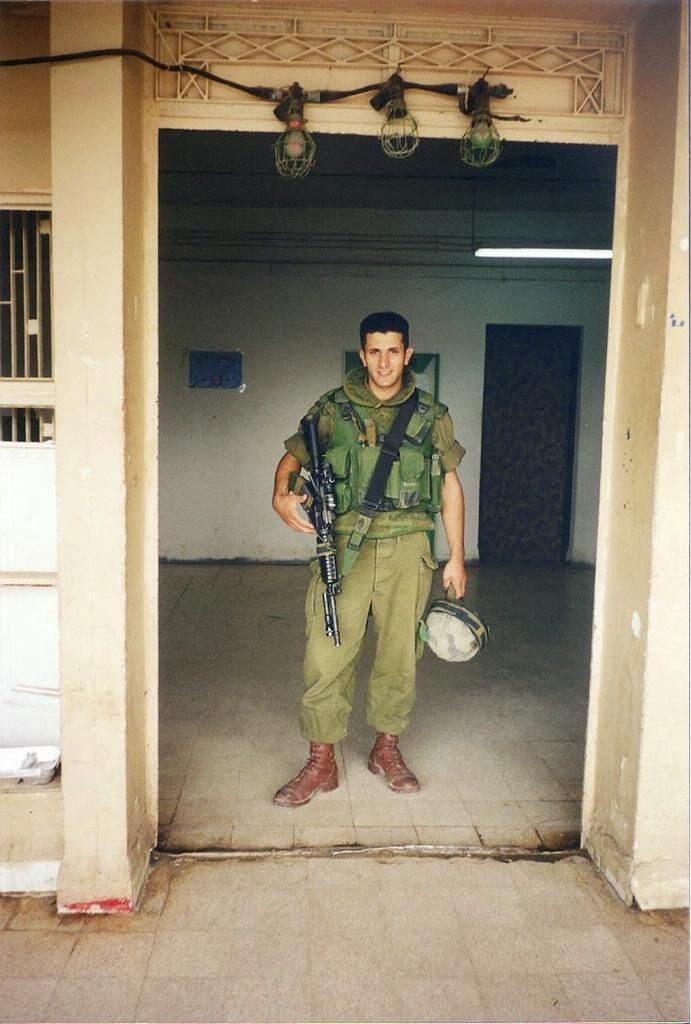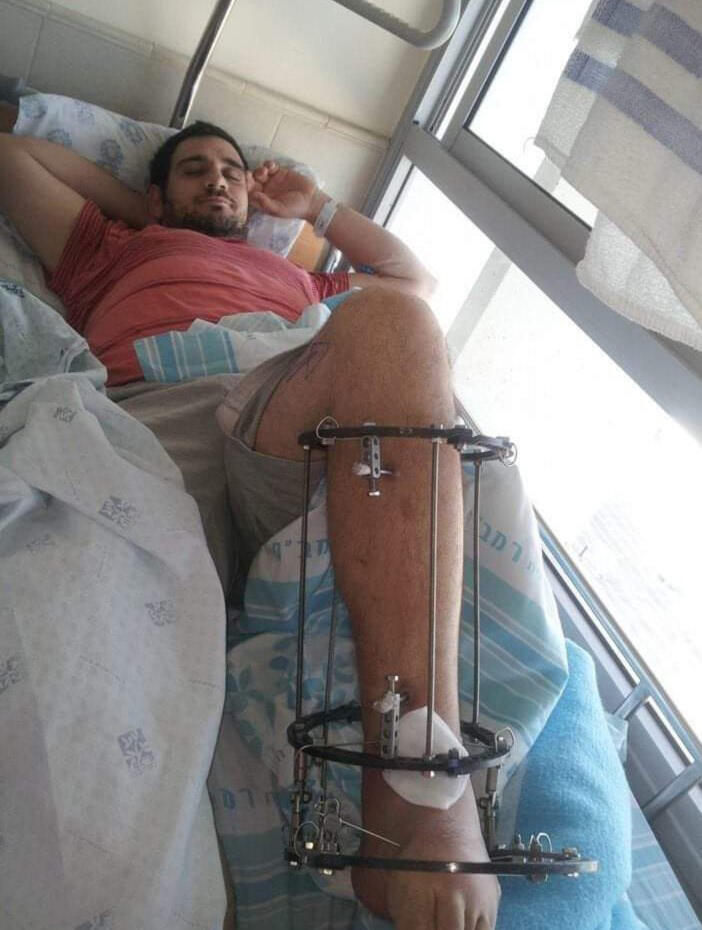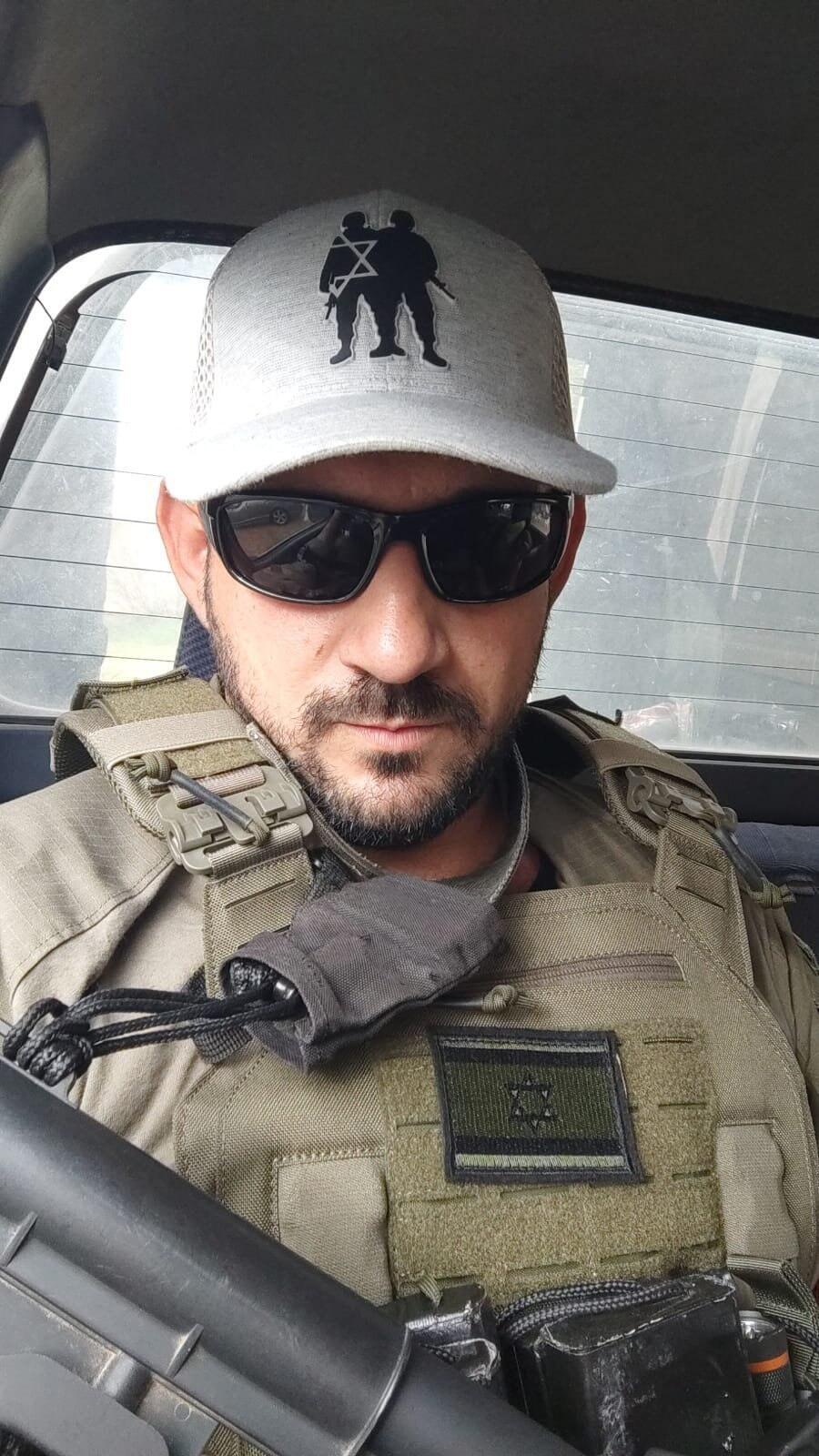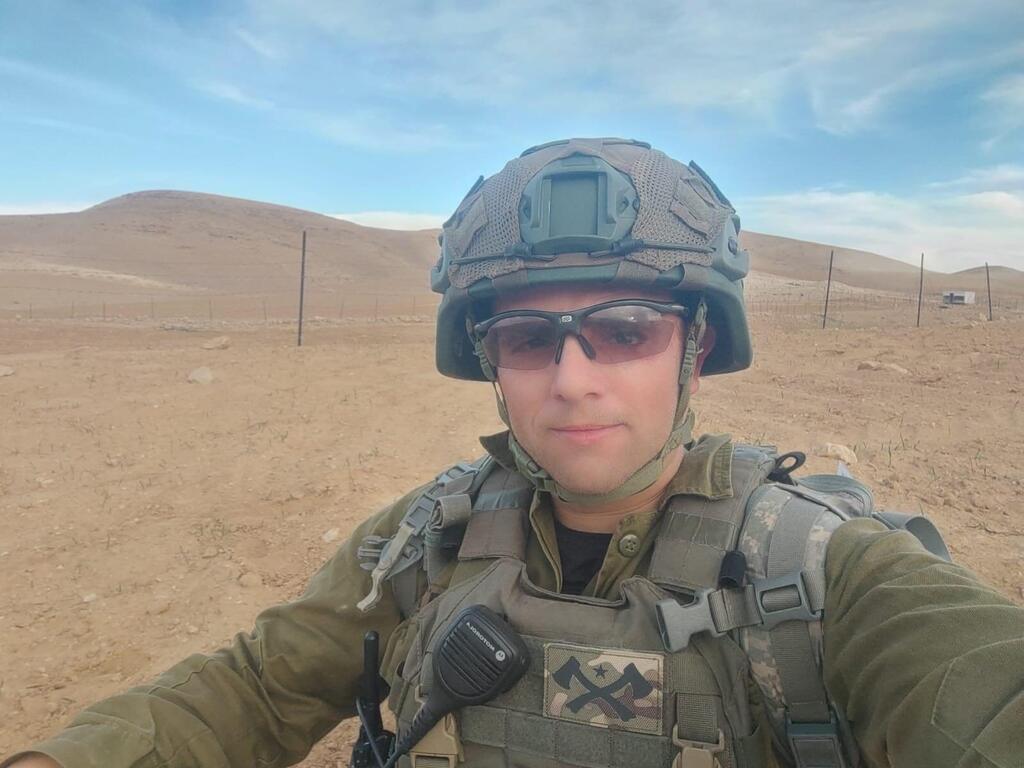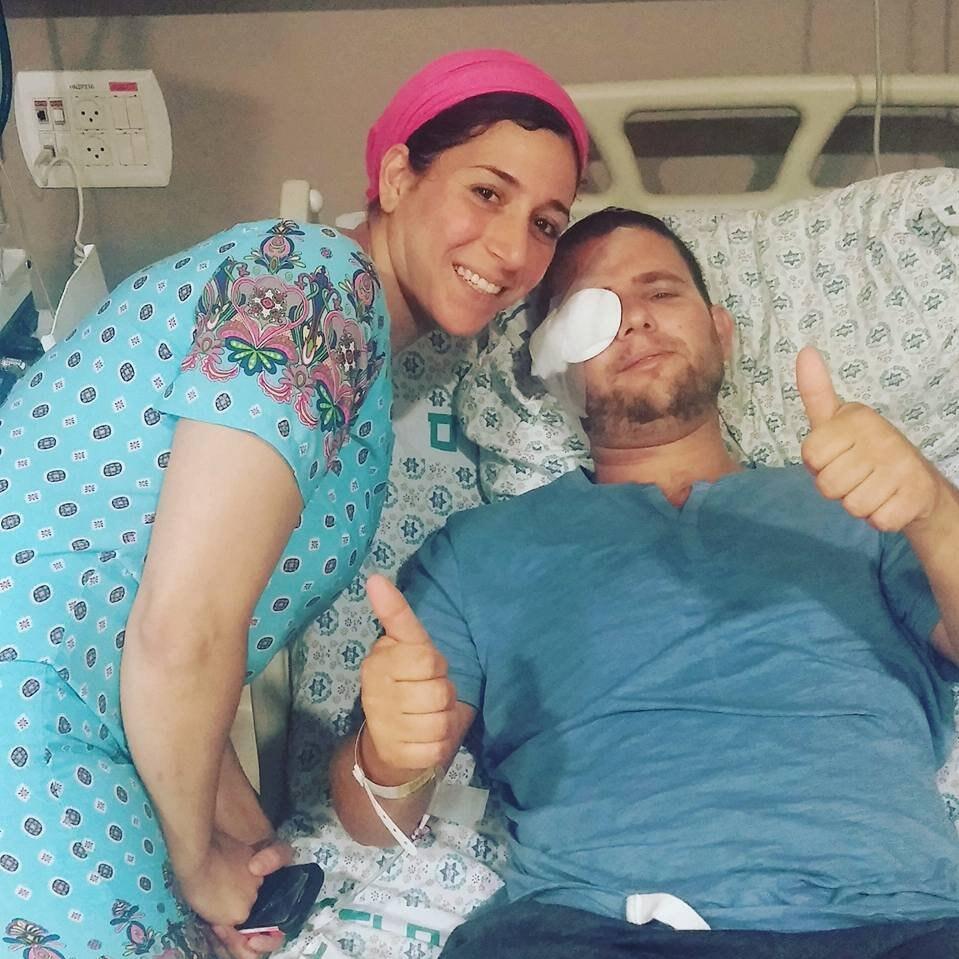Getting your Trinity Audio player ready...
The current war that Israel is fighting is filled with stories of heroism that have come to light since October 7, both in the southern front and in the northern front. Among them, you can find reservists who suffered severe injuries in the past, but despite the physical and mental scars that have not yet healed, they did not think twice. They all put on uniforms and volunteered for combat duties in the reserves as soon as the war broke out. These are the stories of three of them.
Read more:
Ben Atia
In 2000, when Ben Atia, 42, was a young soldier in the Nahal Brigade, a Palestinian terrorist attacked him near Ramallah, stabbed him in the neck and caused near-fatal injuries. Atia lost a lot of blood and even reached a state of clinical death. Some 23 years later, Atia is now a reservist in Battalion 9220 in the Etzion Brigade, in the north.
Atia, a father of two from Ramat Hasharon, donned his uniform again against all odds.
"A year and a half after my injury, one of my good friends fell in Operation Defensive Shield, and I felt the need to finish my service, the last five months, in Ramallah," he recalled on Monday. "Because there was a lack of soldiers, the head of the Personnel Directorate approved my service on condition that the doctor approved my return. And that's what happened. Since then I have continued my therapy and rehabilitation, part of which is also the reserves."
7 View gallery
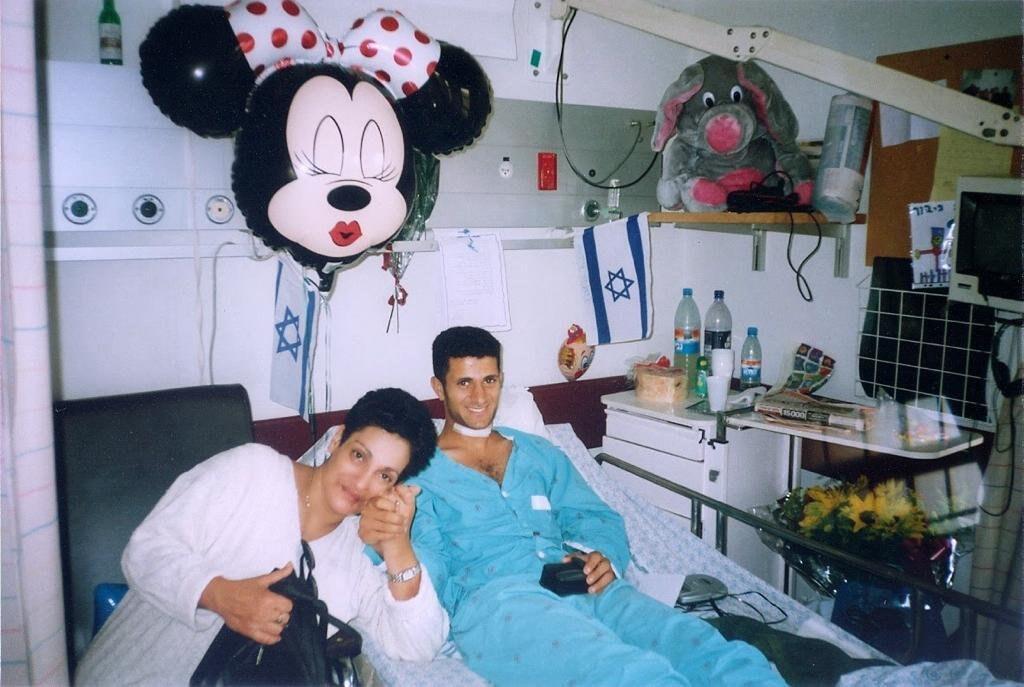

Ben Atia in recovery after injury in Defensive Shield
(Photo: Courtesy of the family)
"I did not hesitate at all," he said. "Volunteering for the reserves is important to me. My father is also a disabled IDF veteran. He was in the 890th Battalion, crossed the Suez Canal and was wounded after Yom Kippur. My younger brother is in Gaza. This is what we know: as long as we are alive, we stand up and contribute."
Atia admits that, since he became a father, the feelings are different. "The fear is indeed greater, but the mission here is different. It's not another training, operational activity, or an operation. I understand that I am not invincible. I know what will happen if I get injured, but that doesn't control me," he said.
Moti Dahan
"When I saw what was happening on October 7, I immediately decided to return to the reserves. It took me two weeks to get rid of the military exemption; it was not easy at all, and during that time I volunteered in the emergency room in the city. It was inevitable for me. It was impossible to stop me," Moti Dahan said.
The exemption from reserves that Moti Dahan ,41, from Nahariyya, had was not given to him for nothing. Dahan, a father of three, was mortally wounded in the Second Lebanon War, from a mortar bomb that fell about half a meter from him in southern Lebanon. Dahan served as a paratrooper and even continued as a commissioned serviceman. The Second Lebanon War was his first time in the reserves.
Following that injury, Dahan underwent 17 surgeries on his leg and still has shrapnel in his body. "I'm still in rehabilitation," he said on Monday. "Rehabilitation is every day. Both mental and physical. I have another operation scheduled for the upcoming year."
But on October 7, he decided to join the reserves again. "This is a war which needs all of us," he explained. "I had no doubt that I would wear a uniform again."
Dahan joined the Daniel Division, a reserve infantry division under the Home Front Command, and has so far performed a variety of tasks in the Gaza envelope, which are intended to restore normalcy to the region. "I did not finish the previous war, and with God's help we will finish this one with an overwhelming victory," he said.
During his reserve service, Dahan hears and sees the evacuation helicopters leaving Gaza, and knows what procedure awaits each of the wounded they carry. "Every helicopter like this that passes over me gives me chills. I understand that there is one person or more, whose life will no longer be the same. I myself visit the wounded and try to strengthen them as much as possible, and I hope that the fact that I am here, on duty, is also something that strengthens and conveys the message that there is life afterwards," he noted excitedly.
Shuki Gilboa
"There is fear, no doubt. Part of the trauma is that the body remembers the pain, and I have a prosthesis in my eye so my range of vision is limited, especially at night. I have to find where I am effective and where I am not, and I find the place where I can give the best of myself," according to Shuki Gilboa.
Shuki Gilboa ,38, father of six from Kiryat Arba, always gave his best. In 2004, he enlisted as a soldier in the elite Sayeret Matkal and, after about a year, he tore the meniscus in both knees, requiring surgery and six months of rehabilitation. But Gilboa insisted on returning to service, and returned to serve as a shooting instructor.
In 2016, Gilboa was part of Kiryat Arba's emergency squad, which was called to service one morning following the infiltration of a terrorist into the settlement. Gilboa entered the house and came across the terrorist who murdered the late 13-year-old Hillel Ariel in cold blood. He confronted the terrorist and, together with another soldier, eliminated him. During the battle, Gilboa was seriously injured by bullets in the head and chest, stab wounds in the legs, and even lost one of his eyes.
However, as soon as the war broke out on October 7, Gilboa joined as a platoon sergeant in the Judea Division, currently replacing the regular force that operate there, which was sent to Israel's borders.
"A few months after the injury I already returned to the reserves, but only to meet the guys," he said on Monday. "In the last year I started to seriously come back. It's not easy to come back, but if I was still sitting at home, I would freak out. It is true that there are complexities and that sometimes it's overwhelming to brings things up, but I have taken care of myself all these years, also through the Disabled IDF Veterans organization. Today I am in a much better place. I have tools to deal with it. Even my wife told me she doesn't remember me being 'so alive'."
7 View gallery
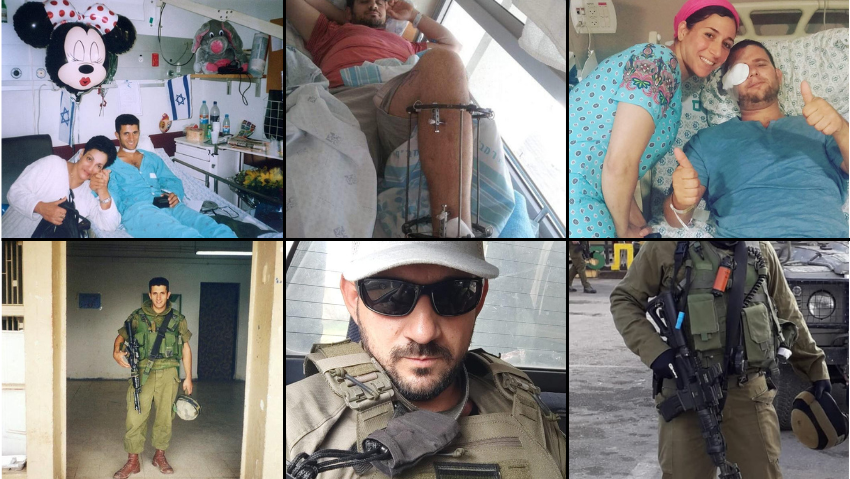

Ben Atia, Moti Dahan, Shuki Gilboa then and now
(Photo: Hodaya Akrish, Courtesy of the families)
Gilboa, like Atia and Dahan, are members of the Disabled IDF Veterans organization, and as part of their rehabilitation they participate in activities within the organization and the rehabilitation centers. "Ben, Shuki and Moti, for me personally and for the IDF's wounded, are a role model and source of pride," said Adi Strauss, chairman of the Friends of the Israeli Disabled Veterans. "Their personal process teaches the newly injured that life continues after the injury."



